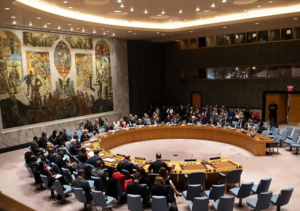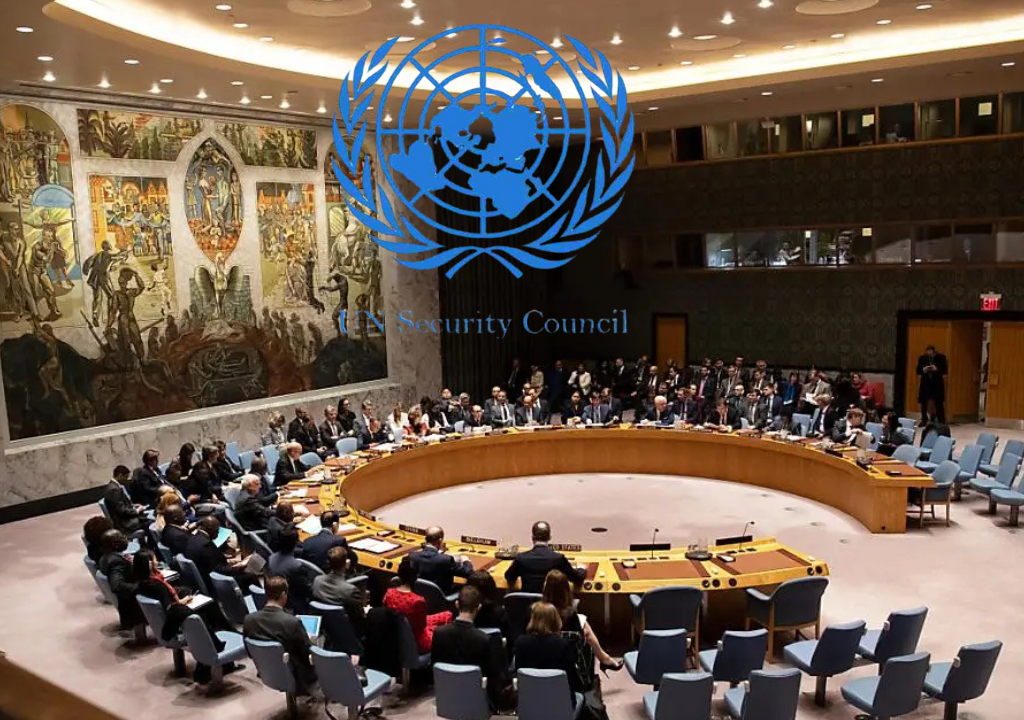The United Nations Security Council (UNSC) took a firm stance against Pakistan during a closed-door consultation on escalating tensions with India following the Pahalgam terror attack. The meeting, which was requested by Pakistan under Greece’s presidency of the Council, backfired as multiple UNSC members raised serious concerns about the involvement of Lashkar-e-Taiba, a Pakistan-based terror group, in the killing of 25 Indian and foreign tourists along with a Kashmiri pony handler.
Rather than gaining international sympathy, Pakistan was pressed with tough questions about its state-supported terror infrastructure, nuclear rhetoric, and recent missile tests, all of which the Council members described as escalatory actions. The UNSC members also rejected Islamabad’s “false flag” narrative, demanding accountability and justice for the victims of the attack.
With key global powers present—including the US, UK, France, Russia, and China, as well as several non-permanent members—the consultation turned into a diplomatic setback for Pakistan.
What Happened at the UNSC Meeting?
Held in New York, the closed-door UNSC consultation was initiated at Pakistan’s request to discuss rising tensions with India in the aftermath of the April 22, 2025 Pahalgam terror attack in Jammu & Kashmir.
According to ANI sources, the meeting lasted over an hour and saw:
- Unanimous condemnation of the Pahalgam terror attack
- Pointed questions about Lashkar-e-Taiba’s involvement
- Dismissal of Pakistan’s false flag narrative
- Concerns over Pakistan’s nuclear rhetoric and missile tests
Global Condemnation and Push for Justice
UNSC members made it clear that terrorism in any form is unacceptable. Specific mention was made of how the attack targeted civilians based on their religion, an act which was condemned as a grave human rights violation.
“Targeting civilians is unacceptable—and those responsible must be brought to justice through credible and lawful means,” UN Secretary-General Antonio Guterres stated ahead of the session.
Countries including the United States, France, and the United Kingdom reportedly emphasized the need for credible investigations, transparent judicial processes, and international cooperation to address the terror threat posed by groups based in Pakistan.
Rejection of Pakistan’s “False Flag” Claim
One of the key moments in the consultation was the rejection of Pakistan’s “false flag” claim—a theory suggesting India orchestrated the attack to malign Islamabad. This narrative failed to gain traction as members of the UNSC called on Pakistan to focus on resolving matters bilaterally with India rather than using international forums to deflect responsibility.
According to insiders, the Council advised Pakistan to address its internal security lapses and dismantle terror groups operating from its soil, rather than accuse others without credible evidence.
Nuclear Posturing and Missile Tests Under Scrutiny
Pakistan’s recent missile tests and aggressive nuclear rhetoric also came under fire. Several UNSC members flagged these actions as escalatory and irresponsible, especially in the context of an already tense regional environment.
“We hope for de-escalation,” said a Russian diplomat after the meeting.
“The situation is volatile. We urge restraint,” added Tunisian diplomat Khaled Mohamed Khiari.
The Greek envoy, presiding over the Council for May, described the meeting as “productive and helpful,” although no official UNSC resolution or statement has been released so far.

India’s Position and Response
India has maintained that the Pahalgam attack was carried out by Pakistan-backed terrorists, specifically Lashkar-e-Taiba, which has a history of orchestrating mass-casualty attacks in India. While India did not release an official statement post-consultation, officials have privately welcomed the international scrutiny of Pakistan’s terror links.
India’s recent decisions—such as the suspension of the Indus Waters Treaty and denial of Pakistani ships at Indian ports—reflect its shift toward stronger diplomatic and strategic responses.
📌 You can read more: India Cuts Off Water to Pakistan from Baglihar Dam
Pakistan’s Reaction and Denials
Post-consultation, Pakistani envoy Asim Iftikhar briefed the press and rejected all allegations of involvement in the Pahalgam attack. He also condemned India’s move to pause the Indus Waters Treaty, calling it a violation of international law.
Despite Pakistan’s attempt to project itself as a victim of escalation, the broader international narrative is shifting toward holding Islamabad accountable for its long-standing tolerance of terror networks.
UN Chief’s Statement: Call for Restraint
Ahead of the UNSC discussions, UN Secretary-General Antonio Guterres emphasized the need for peaceful dialogue between India and Pakistan. While he acknowledged the “raw feelings” following the terror attack, he urged both nations to step back from the brink and prioritize diplomacy over conflict.
“A military solution is not a solution. Dialogue is the only path forward,” Guterres said.
UNSC Members Present at the Consultation
The UNSC is composed of five permanent members with veto powers—China, France, Russia, the UK, and the US—and ten non-permanent members. During this consultation, participants included:
- Algeria
- Denmark
- Greece (Council President)
- Guyana
- Panama
- South Korea
- Sierra Leone
- Slovenia
- Somalia
- Pakistan (as a non-permanent member)
Despite China’s historical alignment with Pakistan, there was no significant support from Beijing for Islamabad’s “false flag” narrative during the meeting, according to diplomatic sources.
International Implications and the Road Ahead
The UNSC questioning Pakistan’s role in the Pahalgam attack marks a critical shift in global perception. While Pakistan has often used platforms like the UN and OIC to raise Kashmir-related concerns, this time, the tables turned.
Key takeaways from the UNSC response include:
- Growing international consensus against terror sanctuaries
- Frustration with Pakistan’s denial and diversion tactics
- Support for India’s call for accountability and regional peace
If Islamabad fails to respond constructively, there is a likelihood of further isolation on global forums, and potential sanctions or blacklist proposals from FATF-related bodies could be revisited.
Conclusion
The UNSC’s strong stance against Pakistan in the aftermath of the Pahalgam terror attack signals a turning point in global counter-terrorism diplomacy. While official statements remain pending, the closed-door consultations revealed widespread condemnation, demand for accountability, and rejection of misinformation.
As India continues to seek justice for the victims, the pressure is now on Pakistan to take visible and verifiable steps against state-supported terror actors. The international community, led by the UNSC, has made it clear: there can be no justification for targeting civilians—and no place to hide for those who support or enable such crimes.
Acknowledgment
Source: ANI News

